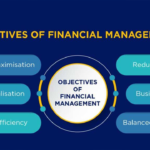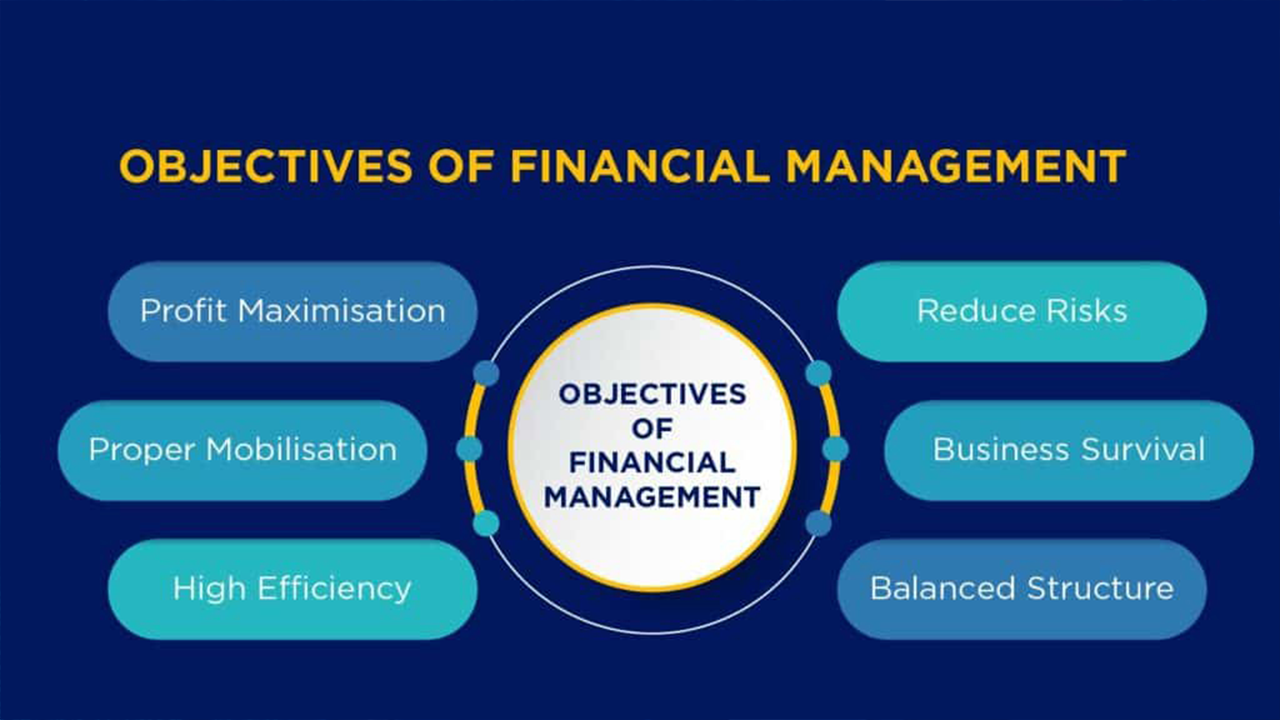Marriage and Family Therapy (MFT) is a specialized form of psychotherapy that focuses on resolving issues within relationships and family systems. It aims to improve the overall functioning of individuals, couples, and families by addressing relational dynamics and fostering effective communication. This article provides an in-depth exploration of Marriage and Family Therapy, including its principles, methods, benefits, challenges, and the role of therapists.
Understanding Marriage and Family Therapy
Marriage and Family Therapy is a branch of psychotherapy that deals with the emotional, psychological, and behavioural problems affecting individuals within the context of their relationships and family structures. MFT is rooted in systems theory, which views problems as arising from the interactions and dynamics between individuals rather than as isolated issues.
Key Principles of Marriage and Family Therapy
- Systems Perspective: MFT views families and couples as interconnected systems. Changes in one part of the system can affect the entire system, and vice versa. This perspective emphasizes understanding the roles and patterns within the family unit.
- Relational Focus: Therapy is centred on improving relationships and communication between family members. It seeks to address underlying issues affecting the relational dynamics rather than focusing solely on individual problems.
- Solution-Oriented: While exploring the root causes of issues is important, MFT often emphasizes finding practical solutions and strategies to improve relationships and family functioning.
- Strengths-Based Approach: Therapists work with families to identify and build on their strengths, fostering resilience and empowering them to overcome challenges.
What is Financial Management? Objectives, Scope & Importance
The Role of Marriage and Family Therapists
Marriage and Family Therapists (MFTs) are trained professionals who specialize in working with individuals, couples, and families to address relational and emotional issues. Their role includes:
- Assessment and Diagnosis: MFTs conduct thorough assessments to understand the nature of the problems and the dynamics within the family. This may involve individual and family interviews, questionnaires, and observation.
- Treatment Planning: Based on the assessment, therapists develop a treatment plan tailored to the specific needs of the clients. This plan outlines goals, strategies, and interventions.
- Therapeutic Interventions: MFTs use various therapeutic techniques and interventions to address issues such as communication problems, conflict resolution, and emotional distress. These techniques may include cognitive-behavioral therapy, narrative therapy, and family systems therapy.
- Facilitation of Communication: Therapists help family members improve their communication skills, express their feelings, and understand each other’s perspectives. Effective communication is crucial for resolving conflicts and fostering healthy relationships.
- Conflict Resolution: MFTs assist families and couples in resolving conflicts and finding mutually acceptable solutions. They help identify the root causes of disagreements and work towards constructive resolutions.
Common Issues Addressed in Marriage and Family Therapy
Marriage and Family Therapy addresses a wide range of issues affecting individuals, couples, and families. Some common issues include:
- Communication Problems: Poor communication is a frequent source of conflict in relationships. MFT helps individuals and couples improve their communication skills and address misunderstandings.
- Conflict Resolution: Therapy provides tools and strategies for resolving conflicts healthily and productively. It helps family members navigate disagreements and find common ground.
- Infidelity: Infidelity can strain relationships and lead to trust issues. MFT addresses the emotional impact of infidelity and works towards rebuilding trust and repairing the relationship.
- Parenting Challenges: Parents may face difficulties in managing their children’s behaviour, setting boundaries, and maintaining consistency. MFT supports parents in developing effective parenting strategies and addressing family dynamics.
- Blended Families: Blending families through remarriage can create unique challenges. MFT helps navigate the complexities of blended family dynamics and fosters positive relationships among family members.
- Mental Health Issues: Therapy can support individuals and families dealing with mental health conditions such as anxiety, depression, and substance abuse. MFT integrates mental health support with relational and family-focused interventions.
Therapeutic Techniques and Approaches
Marriage and Family Therapy employs various therapeutic techniques and approaches to address issues and facilitate positive change. Some commonly used approaches include:
- Structural Family Therapy: Developed by Salvador Minuchin, this approach focuses on the organization and structure of the family. It aims to alter dysfunctional family structures and improve interactions.
- Strategic Family Therapy: This approach, pioneered by Jay Haley and Cloe Madanes, emphasizes the use of strategies and interventions to address specific problems and change maladaptive patterns.
- Narrative Therapy: Developed by Michael White and David Epston, narrative therapy focuses on the stories individuals and families construct about their lives. It aims to help clients reframe their narratives and develop new, empowering perspectives.
- Cognitive-Behavioural Therapy (CBT): CBT is a widely used approach that focuses on changing negative thought patterns and behaviours. In the context of MFT, CBT techniques are applied to address relational issues and improve communication.
- Emotionally Focused Therapy (EFT): EFT, developed by Sue Johnson and Leslie Greenberg, emphasizes the role of emotions in relationships. It helps couples and families understand and express their emotions to strengthen their connections.
Benefits of Marriage and Family Therapy
Marriage and Family Therapy offers numerous benefits for individuals, couples, and families:
- Improved Communication: Therapy enhances communication skills, allowing family members to express their feelings and concerns more effectively. This leads to better understanding and fewer misunderstandings.
- Stronger Relationships: By addressing underlying issues and fostering positive interactions, MFT strengthens relationships and promotes healthier family dynamics.
- Conflict Resolution Skills: Therapy equips individuals and families with tools and strategies for constructively resolving conflicts. This leads to more harmonious relationships and reduced tension.
- Enhanced Emotional Wellbeing: MFT supports individuals and families in managing stress, anxiety, and other emotional challenges. It promotes emotional resilience and overall well-being.
- Increased Understanding: Therapy helps family members gain insight into each other’s perspectives and experiences. This fosters empathy and strengthens the family unit.
- Personal Growth: Individuals may experience personal growth and self-awareness through therapy. This contributes to improved self-esteem and a greater sense of fulfilment.
Challenges in Marriage and Family Therapy
While Marriage and Family Therapy offers significant benefits, it also presents challenges:
- Resistance to Change: Some individuals or family members may resist change or be reluctant to engage in therapy. Overcoming resistance requires patience and persistence from the therapist.
- Complex Family Dynamics: Families may have complex dynamics and entrenched patterns of behaviour that can be challenging to address. Therapists need to navigate these complexities to achieve positive outcomes.
- Confidentiality Concerns: Ensuring confidentiality in family therapy can be challenging, especially when discussing sensitive or private matters. Therapists must maintain confidentiality while addressing the needs of the family.
- Differing Goals: Family members may have differing goals and expectations for therapy. Aligning these goals and finding common ground can be a challenge for therapists.
- External Stressors: External stressors such as financial difficulties, work-related issues, and health problems can impact the effectiveness of therapy. Therapists need to consider these factors in their approach.
Finding a Marriage and Family Therapist
Choosing the right Marriage and Family Therapist is crucial for a successful therapeutic experience. Here are some tips for finding a qualified therapist:
- Credentials and Experience: Look for therapists who are licensed and have relevant experience in marriage and family therapy. Check their qualifications and areas of expertise.
- Referrals and Recommendations: Seek recommendations from trusted sources such as healthcare providers, friends, or family members. Referrals can provide valuable insights into a therapist’s approach and effectiveness.
- Compatibility: It is important to find a therapist with whom you feel comfortable and understood. Compatibility between the therapist and clients is essential for effective therapy.
- Approach and Techniques: Consider the therapist’s approach and techniques to ensure they align with your needs and preferences. Different therapists may use various therapeutic approaches.
- Availability and Accessibility: Ensure that the therapist’s availability and location are convenient for you. Accessibility factors such as scheduling and location can impact your ability to attend sessions consistently.

The Evolution of Marriage and Family Therapy
Marriage and Family Therapy (MFT) has evolved significantly since its inception, adapting to changing societal norms and advances in psychological research. Understanding its historical development provides insight into how the field has shaped and been shaped by cultural and scientific changes.
Historical Overview
- Early Beginnings: The roots of MFT can be traced back to the early 20th century when psychoanalytic and psychodynamic theories began to influence the understanding of relationships and family dynamics. Early therapists focused primarily on individual therapy but started recognizing the importance of familial and relational contexts.
- Systems Theory Emergence: In the 1950s and 1960s, the development of systems theory brought a paradigm shift to MFT. Pioneers like Murray Bowen and Salvador Minuchin introduced concepts of family systems and structures, emphasizing the interconnectedness of family members and how changes in one part of the system affect the whole.
- Growth of Diverse Approaches: During the 1970s and 1980s, MFT expanded to include various approaches such as strategic, structural, and narrative therapies. This period saw the integration of diverse methodologies and the establishment of specialized training programs and professional organizations.
- Contemporary Trends: Today, MFT continues to evolve, incorporating evidence-based practices and addressing a broader range of issues. Modern therapists integrate techniques from cognitive-behavioural therapy, emotion-focused therapy, and other therapeutic modalities to provide comprehensive care.
Specialized Areas of Marriage and Family Therapy
Marriage and Family Therapy encompasses a range of specialized areas that address specific issues and populations. Some notable areas include:
Premarital Counseling
Premarital counselling focuses on preparing couples for marriage by addressing potential challenges and enhancing their relationship skills. It often includes discussions on communication, conflict resolution, financial management, and expectations for marriage. Premarital counselling aims to build a strong foundation for a successful and lasting marriage.
Parenting and Family Dynamics
Therapists working with families often address parenting issues, including discipline strategies, co-parenting, and managing blended family dynamics. They help parents develop effective parenting techniques and navigate the challenges of raising children in a supportive and nurturing environment.
Infidelity and Trust Issues
Infidelity can significantly impact relationships, leading to trust issues and emotional distress. Therapists specializing in infidelity work with couples to explore the underlying causes, rebuild trust, and work towards healing and reconciliation.
Addiction and Recovery
Families affected by addiction often experience complex emotional and relational challenges. Therapists specializing in addiction and recovery provide support for individuals struggling with substance abuse and help families cope with the effects of addiction. They work on rebuilding relationships and establishing healthy coping mechanisms.
Cultural and Diversity Considerations
Cultural and diversity considerations play a crucial role in MFT. Therapists must be sensitive to cultural differences, including traditions, values, and beliefs, that impact family dynamics and therapy. Culturally competent therapy involves understanding and respecting diverse backgrounds while providing effective support.
The Future of Marriage and Family Therapy
As society continues to evolve, so does the field of Marriage and Family Therapy. The future of MFT is likely to be shaped by several key trends and developments:
Integration of Technology
Technology is increasingly integrated into therapeutic practices, including teletherapy and digital tools for assessment and intervention. Virtual therapy sessions offer accessibility and convenience, allowing clients to receive support from remote locations.
Focus on Preventive and Proactive Approaches
There is a growing emphasis on preventive and proactive approaches in therapy. This includes early intervention strategies and programs designed to promote healthy relationships and prevent issues before they escalate.
Incorporation of Evidence-Based Practices
The field of MFT is increasingly relying on evidence-based practices to ensure effective treatment. Research and data-driven approaches help therapists apply interventions that have been proven to work in various contexts.
Holistic and Integrative Approaches
Holistic and integrative approaches are becoming more common in MFT. This includes incorporating techniques from various therapeutic modalities, such as mindfulness, trauma-informed care, and integrative health practices, to address the multifaceted needs of clients.
Greater Emphasis on Diversity and Inclusion
There is a growing recognition of the importance of diversity and inclusion in therapy. Future developments in MFT are likely to focus on increasing cultural competence, addressing systemic inequalities, and providing support for diverse family structures and identities.
Practical Tips for Making the Most of Therapy
For individuals and families embarking on the journey of Marriage and Family Therapy, there are several practical tips to maximize the effectiveness of the therapy process:
- Be Open and Honest: Effective therapy requires openness and honesty. Share your thoughts, feelings, and concerns openly with your therapist to facilitate a deeper understanding and address underlying issues.
- Set Clear Goals: Work with your therapist to set clear and achievable goals for therapy. Having well-defined objectives helps guide the therapeutic process and measure progress.
- Participate Actively: Engage actively in therapy sessions and participate in any assigned tasks or exercises. Active involvement contributes to the success of therapy and promotes personal and relational growth.
- Be Patient: Therapy is a process that takes time. Be patient with yourself, your family members, and the therapeutic process. Progress may be gradual, and setbacks are a normal part of the journey.
- Practice What You Learn: Apply the skills and techniques learned in therapy to your daily life. Practising communication strategies, conflict resolution techniques, and other therapeutic skills can reinforce positive changes.
- Seek Support Outside of Therapy: In addition to therapy, seek support from other resources such as support groups, educational materials, and community services. Additional support can complement and enhance the therapy experience.

Marriage and Family Therapy is a valuable resource for individuals, couples, and families seeking to improve their relationships and address emotional and behavioural challenges. By focusing on relational dynamics and employing various therapeutic techniques, MFT helps clients achieve greater understanding, effective communication, and stronger connections. While therapy presents challenges, the benefits of improved relationships and enhanced emotional well-being make it a worthwhile endeavour for those seeking positive change. Choosing a qualified and compatible therapist is key to a successful therapeutic journey, leading to healthier, more fulfilling relationships and a more harmonious family life.










